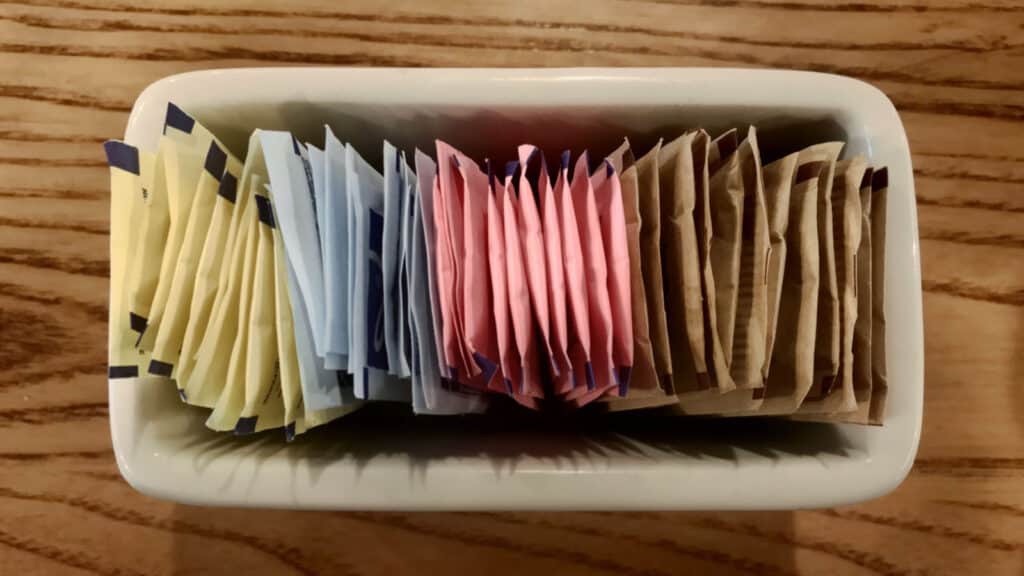Understanding the Relationship Between IBS and Diabetes
Living with Irritable Bowel Syndrome (IBS) while also managing type 2 diabetes or prediabetes can pose significant challenges, especially when it comes to dietary choices. The low FODMAP diet is a commonly prescribed diet for the 1 in 5 people worldwide who suffer with IBS. While conventional advice for diabetes typically includes a high-fiber diet and reducing sugar intake, navigating these recommendations alongside a low FODMAP diet for IBS adds complexity.
Surprisingly, there’s a deeper connection between gut health and insulin resistance than commonly assumed. In this post, we’ll explore the link between IBS, the gut microbiome, and diabetes, along with practical strategies to manage both conditions effectively.
What is IBS?

IBS is a chronic gut disorder characterized by symptoms like abdominal pain, bloating, and irregular bowel movements. Though its exact cause remains unclear, factors such as gut microbiome imbalance and an altered gut-brain connection, can contribute to its onset.
Understanding Diabetes

Diabetes is a chronic condition marked by high blood sugar levels due to insufficient insulin production or cells becoming resistant to insulin. Type 2 diabetes and prediabetes, which are primarily influenced by lifestyle factors, can often be managed through dietary changes without medication.
The Connection Between IBS & Diabetes

While extensive research has explored the relationship between gut microbes and insulin resistance, studies specifically focusing on IBS and diabetes are limited. However, both conditions share common traits like chronic inflammation and gut microbiome disruption. Nerve damage from poor glycemic control with diabetes can lead to altered motility (movement within the intestines), which is something that can occur with IBD as well.
Gut Microbiota and Insulin Resistance

The gut microbiome plays a crucial role in metabolic diseases like obesity and type 2 diabetes. Shifts in microbial composition, such as increased Firmicutes and decreased Bacteroidetes (bacteria found in the human intestine), can lead to inflammation and impaired insulin sensitivity. Recent studies have highlighted specific bacterial strains’ impact on insulin sensitivity, emphasizing the importance of gut health in managing diabetes and related conditions.
Dietary Strategies for Managing IBS & Diabetes

There are many dietary strategies that can be employed that will help manage both IBS and diabetes. The key is to find foods which are appropriate for both conditions. A Registered Dietitian can help guide you.
Low FODMAP Fiber

Prioritize fiber-rich foods low in FODMAPs, such as raspberries, quinoa, and potatoes, to support digestive health and stabilize blood sugar levels. A more complete discussion on FODMAPs (Fermentable Oligosaccharides, Disaccharides, Monosaccharides and Polyols) can be read here.
Be Mindful of Sugar Substitutes

Avoid sugar alcohols, such as xylitol, maltitol, isomalt, sorbitol, and mannitol. Also avoid artificial sweeteners commonly found in sugar-free products, as they may exacerbate IBS symptoms and potentially increase diabetes risk.
Per 2023 World Health Organization Guidelines, use of Non-Nutritive Sweeteners (aka NNS, or calorie-free sweeteners such as acesulfame K, aspartame, cyclamates, neotame, saccharin, sucralose, stevia) may not actually help with weight control and could potentially increase the risk of type 2 diabetes and obesity longer term. While we still need to learn more, if you have prediabetes and/or are at risk, using these options may do more harm than good.
Regular Meal Timing

Maintain consistent meal timings to support digestion and prevent blood sugar fluctuations. Incorporate fiber, protein, and healthy fats into each meal to promote satiety and stable energy levels throughout the day.
Prebiotic and Fermented Foods

Include prebiotic-rich foods like oats and asparagus to nourish beneficial gut bacteria and improve insulin sensitivity. Incorporating fermented foods like kefir and sauerkraut can further enhance gut health and metabolic function.
Intermittent Fasting: Not Always a Good Choice

While intermittent fasting may offer benefits for weight loss and glycemic control in diabetes, its impact on IBS symptoms is inconclusive, and our dietitians do not recommend it for their IBS patients. Focus on eating during daylight hours and maintaining a consistent eating pattern to support both metabolic and digestive health.
Also see this article on IBS, circadian rhythms and meal timing, which is quite interesting.
Lifestyle Recommendations

Changes in lifestyle habits can also go a long way to managing your IBS and diabetes. Exercise and sleep are key. And it is never too early or late to begin practicing these healthy habits.
Physical Activity

Engage in regular, low-intensity exercise like walking to improve insulin sensitivity and aid digestion. Always check with your doctor before adding an exercise regime.
Sleep Hygiene

Prioritize adequate sleep to support metabolic function and gut health, aiming for at least 8 hours of quality sleep per night. Not sleeping well? How old is your mattress? Is your pillow giving you the right support. Side sleepers have different needs than back sleepers, for instance. Darken with room, and check the temperature. Often a cooler room helps. White noise machines can block street noise, if that is an issue (or noise from elsewhere in the house). There are many strategies to employ to help you sleep better.
Stress Management

Stress causes a rise in our cortisol levels, a hormone which naturally increases blood sugars. High stress can also be a trigger for IBS flare-ups due to its effect on down regulating the ‘parasympathetic’ nervous system (aka deprioritizing our rest and digest response).
There is a gut-directed hypnotherapy app, Nerva, that helps you regulate the connection between your gut and brain. It is clinically proven, comes with a money-back guarantee and is not contraindicated with anything else you might be doing. We have used it ourselves to great success.
The Takeaway

By adopting a holistic approach that addresses both dietary and lifestyle factors, individuals with IBS and diabetes can effectively manage their conditions and improve overall well-being. Discuss any changes with your medical doctors and dietitian, but isn’t it great to know that there is so much you can do without resorting to drugs or other more drastic interventions?
This article based upon one written by Leigh Merotto RD MHSc for FODMAP Everyday®.
More Articles About IBS

Our sister publication FODMAP Everyday® is at the forefront of IBS education, particularly in relation to the low FODMAP diet. We have brought versions of many of the articles here for you:
- How to Breastfeed if You Have IBS
- IBS Treatments: One Size Does Not Fit All
- The Pancreatic Cancer, Pancreatitis, and IBS Connection: Don’t Ignore Your Symptoms
- Understanding IBS Subtypes and Tailored Treatment
- Are You Sabotaging Your Gut Health? 8 Things to Stop Doing Now
Join Us

Join us on this empowering journey as we explore, celebrate, and elevate “her story.” The Queen Zone is not just a platform; it’s a community where women from all walks of life can come together, share their experiences, and inspire one another. Welcome to a space where the female experience takes center stage. Sign up for our newsletter so you don’t miss a thing, Queen!







